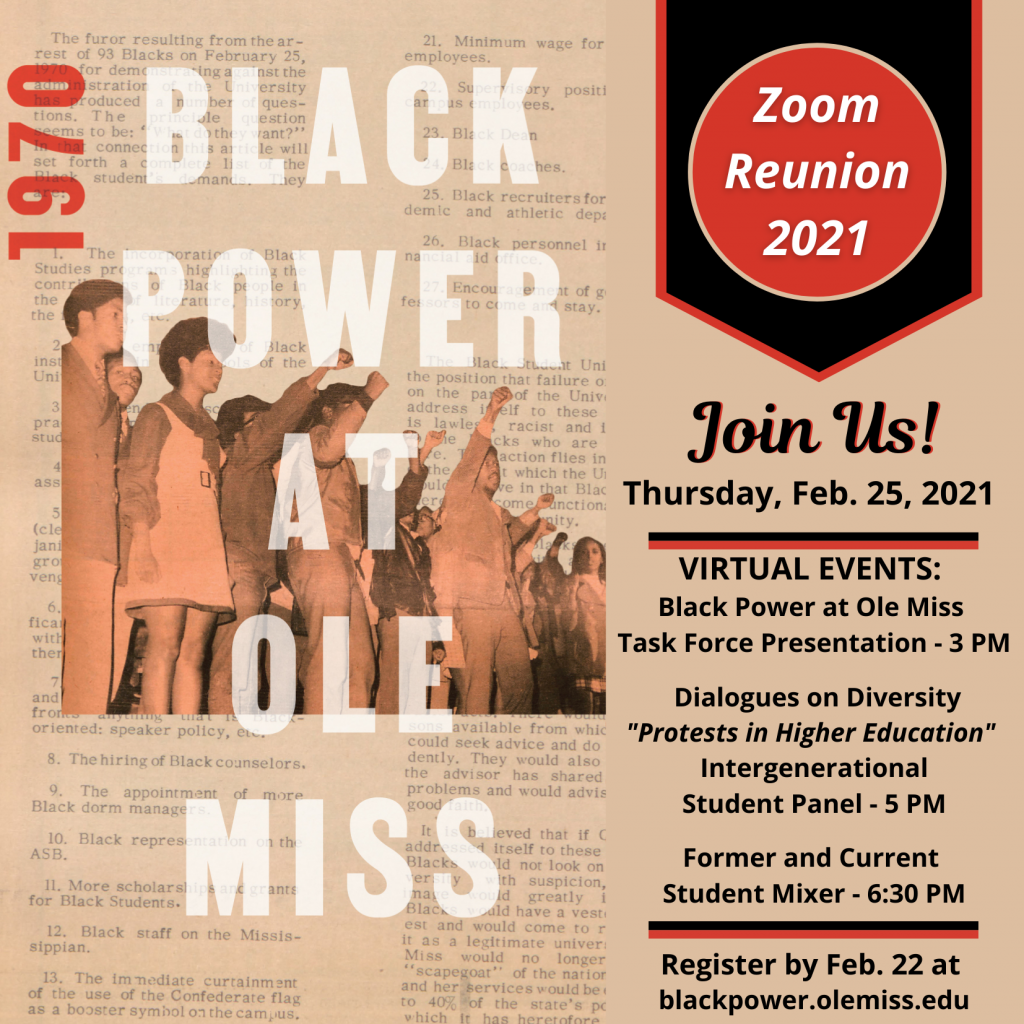The Fulton Chapel Protest
On the evening of February 25, 1970, more than 50 Black students at the University of Mississippi interrupted a concert at Fulton Chapel where the band “Up with People” was performing. The “Fulton Chapel Protest,” was just one of many efforts undertaken by Black students during the 1960s and 1970s to force the University reckon with the atmosphere of bigotry and prejudice that pervaded the institution. But school officials met the demonstration with overwhelming force.
Although students had protested peacefully, administrators called the state highway patrol and had the demonstrators—plus other Black students who had arrived to support them—arrested as they filed out of Fulton Chapel. Two more arrests took place that night as students gathered to discuss what had happened and strategize bail for their classmates. In total, 89 of the total 191 Black students on campus were arrested that night.
Some of these student protestors were taken to Lafayette County jail, but the remaining students were bussed to the State Penitentiary at Parchman, where they remained almost two full days. When they were subsequently tried before the Student Judicial Council, the student protesters remained steadfast in their commitment and activism. In response, the all-white Student Judicial Council imposed, and Chancellor Porter Fortune upheld, two-year suspensions on eight of the students. The remaining students were put on ten-year probationary periods to deter any future activism.
Black Power at Ole Miss Task Force
Fifty years passed before the University formally acknowledged the damage its response to the “Fulton Chapel Protest” caused. To commemorate this anniversary, the University hosted a two-day event on February 24-25, 2020 that included a film screening, a staged reading, a panel discussion, a commemorative ceremony, and the keynote address for Black History Month.
Recognizing how much work remained to be done, however, in May 2020 Provost Noel Wilkin commissioned a task force composed of current University of Mississippi faculty, staff, and students, as well as some of the students who participated in the “Fulton Chapel Protest” and their family members, to continue the work of repair, reconciliation, and relationship building with the alumni directly affected by the arrests and expulsions the University ordered in 1970.
